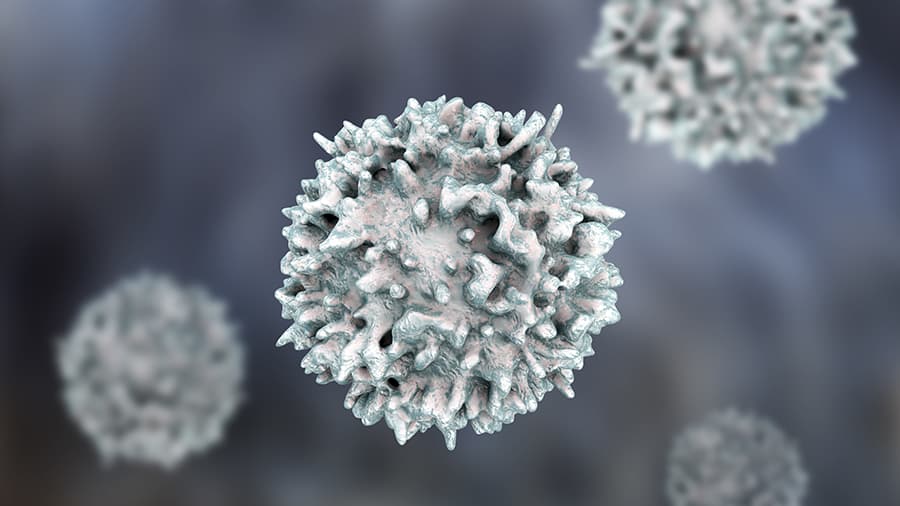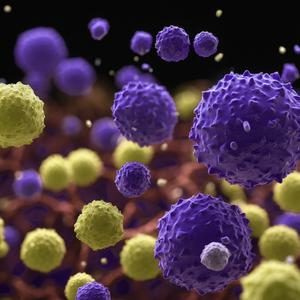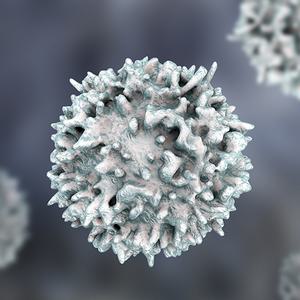
Repertoire® Immune Medicines
Most Flagship companies develop from the kernel of a single idea. An origination team of scientific entrepreneurs within Flagship Labs, the enterprise’s innovation foundry, wonder “about a new space that might exist,” in the words of CEO Noubar Afeyan. That idea evolves, sometimes unrecognizably, “as descendant versions of the original conception are… created as [we] overcome the objections.” Honed over the twenty years since the founding of Flagship itself, it is a process fashioned on Darwinian evolution.
But sometimes, in a kind of horizontal gene transfer, two Flagship companies, created to develop separate but unprecedented ideas, are combined to make a new venture, because the single entity is more than the sum of its parts. This is the history of Repertoire Immune Medicines, which was formed from the partnership of two earlier companies, Cogen Immune Medicine and Torque Therapeutics.
Both Cogen and Torque were working to understand and exploit the mechanisms by which the immune system protects humans from cancer, infection, and other diseases, but they had distinctly different approaches. Cogen Immune Medicine possessed an unparalleled understanding of how the human immune system can address critical patient needs. Torque was developing a new class of cellular immunotherapy that directed the immune response against solid and hematologic tumors. By combining the efforts of the companies, Repertoire will harness the immune system’s intrinsic ability to unleash the curative powers of the immune system to prevent and cure cancer, autoimmune, and infectious diseases.

Origins
The immune system is vastly more complex than the first immunologists imagined—and even more important to maintaining health. The role of immune cells in preventing infection has been well understood for years. Scientists also knew that rheumatoid arthritis, psoriasis, multiple sclerosis and lupus were autoimmune diseases. But researchers have begun to learn how the immune system prevents cancer, and some of the most exciting recent developments in immunology, including checkpoint Inhibitors (for which James Allison and Tasuko Honjo were awarded the 2018 Nobel Prize in Medicine) and Chimeric Antigen Receptor T-cell, or CAR-T therapies (where genetically altered immune cells treat cancers), derive from new insights into the power of immune cells.
Cogen and Torque were born amid this renaissance in immunotherapy. Founded in 2017, Cogen’s origins derive from a very specific question. Flagship Pioneering general partner David Berry and principal Ewen Cameron wanted to understand how the immune system ages.
“As the immune system gets older, people become more susceptible to cancer, autoimmune disease, and vaccines work less well,” Berry says. “We figured, if we could understand this, then there might be certain cases where we’d want to reduce or eliminate the aging in the immune system to treat or prevent disease. That was our original goal.” Berry and Cameron quickly realized they’d need to know what the immune system looked like at different points in time in order to figure out whether the aging was happening faster or slower. But there were no tools to measure the immune system. “We realized if we could understand the state of the immune system at any given point, we could have therapeutics right now,” Berry says.
Torque, cofounded in 2016 by managing partner Doug Cole, had a different focus. At a cellular and molecular level, solid tumors exhibit features that render them impregnable to existing immune cell therapies, including CAR-Ts. The environment immediately in and around solid tumors weakens and suppresses the anti-tumor function of immune cells. Blasting the tumor’s site with immune cells hasn’t worked, and systemic immune activation can create dangerous and often life-threatening levels of toxic inflammation throughout the body. Torque aimed to tackle these critical challenges with a new class of targeted immunotherapy it called Deep-Primed T-cell therapeutics, which would allow doctors to non-genetically modify specific subsets of a patient’s own immune cells to persistently overcome the tumor microenvironment and kill cancer cells.
Breakthrough
As Cogen evolved, the initial focus on aging was broadened to include all disease, with an initial emphasis on immuno-oncology. The company sought to unravel the mystery of why certain molecular events overwhelm our immune-surveillance by studying T cell receptors (TCRs). Cogen wanted to use TCRs to find the best antigens that elicit an immune response in the body. The company believed that understanding how our TCRs function could provide a uniquely powerful way to treat any number of diseases. Many T cells exist in tumors because their TCRs recognize tumor associated antigens (TAAs); if researchers could use TCRs to discover their antigen targets, they could use those antigens to create effective medicines. Indeed, Torque wanted to use TAAs to deep prime T cells to treat cancer. The trouble is, every human body comprises a huge number of unique TCRs; and each TCR in turn is tuned to recognize a small number of the unimaginably vast universe of possible antigens our cells could encounter on any given day.
Cogen was born out of a desire to attack this challenge. The company built an ingenious and unique technology platform that allowed for the potential identification of every TCR and corresponding antigen in a person. “The company was focused on understanding what the immune system looks like inside people,” says Berry.
At the same time, Torque was developing a platform that coaxed immune cells to persistently respond to the multiple TAAs within the various cells of a solid tumor. Torque’s Deep-Primed platform fitted TAA-trained immune cells with molecular backpacks, designed to maintain T cell function in the face of potent suppression by the tumor. The Deep-Primed cells released their immune-activators and overwhelmed the tumor’s defenses at the tumor site. Traditional approaches generally sought to boost the immune system broadly, creating terrible toxicity. “This was a totally different approach than CAR-T, priming T-cells with multiple antigens simultaneously so that they are using their natural antigen selection mechanism,” explains Cole.
Focus
But Torque’s Deep-Priming was only as good as the immune cells it trained. It became clear to Flagship’s scientists that Cogen’s antigen identification platform could help Torque to target specific T cells that are best suited to treat the patient’s disease. In combination, the two companies might transform immune medicine by providing the right patient cells with the best tools to fight disease.
Beginning in 2019, the two companies began exploring how they might create a new, ambitious venture, Repertoire. Launched in February of 2020 under the leadership of Chief Executive Officer John Cox, Repertoire’s comprehensive, proprietary platforms advance the ability to measure and predict antigen presentation, TCR binding, and functional response. Repertoire harnesses the immune system’s curative capacities by decoding disease relevant Antigen-TCR pairs and deploys them as breakthrough immune medicines—molecular backpacks—in immuno-oncology, autoimmune, and infectious diseases. Today, Repertoire is analyzing millions of human TCR-antigen structural relationships to understand their curative potential and validate their use in solid and hematologous tumors—and is already treating patients in clinical trials. In the future, Repertoire will expand its therapies to other diseases beyond cancers.
Individually, perhaps, neither Cogen nor Torque could have created a new category of medicines. The former focused on cell function and specificity; the latter on manipulating cell state. Both were required to crack open current limitations in immunosuppressive microenvironments such as cancers and, one day, an even wider variety of diseases.
Latest News from Repertoire® Immune Medicines
- Flagship Pioneering and Repertoire® Immune Medicines Announce Agreement to Identify T Cell-Targeted Immune Medicines for Prostate Cancer Under Strategic Partnership with Pfizer 12.22.2025
- Repertoire® Immune Medicines Enters into Collaboration and License Agreement with Genentech for the Development of T cell-Targeted Therapies for an Autoimmune Disease 04.23.2025
- Repertoire® Immune Medicines and Bristol Myers Squibb Announce Multi-Year Strategic Collaboration to Develop Tolerizing Vaccines for Autoimmune Diseases 04.29.2024
- Repertoire Immune Medicines Strengthens Executive Team; Names Biotech Industry Veterans to Key Roles 04.23.2020
- Repertoire Immune Medicines Launches Type 1 Diabetes Focused Program with Investment from JDRF T1D Fund 03.25.2020
- Flagship Pioneering Announces the Launch of Repertoire Immune Medicines with Industry Veteran John G. Cox as Chief Executive Officer 03.12.2020


